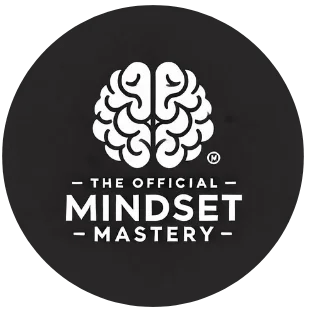Professionals at all levels need resilience in today’s fast-paced, high-pressure workplaces. Resilience in the job means adapting, recovering from setbacks, and maintaining mental and emotional health. This trait helps people handle stress, workload pressure, and unexpected changes, making it essential for career success. A research by the American Psychological Association found that resilient workers enjoy higher job satisfaction, lesser burnout, and more productivity. Building resilience can help you handle working obstacles.
Workplace Change Adaptation
The modern workplace is constantly changing due to new technologies, market demands, and organizational restructuring. Resilient professionals can adapt fast and successfully without losing performance or morale. Resilience requires adaptability, which means being open to new ideas, willing to learn, and accepting change as part of growth. Forbes found that today’s employers value adaptability among soft talents. Resilience—the ability to adapt without becoming overwhelmed—can boost career longevity and work happiness.
Building Workplace Resilience with Stress Management
Professionals often struggle with workplace stress, but stress management can boost resilience. Resilient people may handle stress by being positive and adopting coping strategies. Mindfulness, time management, and exercise can lessen the detrimental effects of stress on mental and physical health. Mindfulness improves stress resilience and emotional regulation in professionals, improving workplace performance, according to a Journal of Occupational Health Psychology study. Prioritizing stress management builds resilience and prevents burnout.
Develop a Growth Mindset for Workplace Resilience
Carol Dweck created the growth mindset, which holds that effort, learning, and perseverance may improve skills. Having a growth mindset at work helps professionals see setbacks as chances for growth rather than insurmountable obstacles. A growth attitude makes professionals more inclined to take on new tasks, persevere through setbacks, and succeed in their careers, according to Harvard Business Review research. A growth mindset helps you stay motivated and resilient by focusing on learning and development rather than perfection.
Creating Good Workplace Relations
Positive workplace interactions boost resilience. During tough circumstances, a robust support system of coworkers, mentors, and supervisors can help emotionally and practically. The Harvard Business Review found that professionals with positive working connections are more resilient because they have a network of people to ask for help, encouragement, and feedback. These interactions enhance belonging and collaboration, reducing workplace stress and building resilience. Positive connections and supportive relationships can help you with professional obstacles.
Accepting Failure for Resilience
Professional growth involves failure, but how you handle it determines your resilience. Instead of taking failure personally, resilient workers learn from it. They analyze what went wrong, learn from it, and better. The University of Pennsylvania’s Positive Psychology Center found that those who accept failure as part of learning are more resilient. Learning from failure builds resilience by helping professionals focus on growth and improvement rather than being disheartened by mistakes.
Emotional Intelligence and Workplace Resilience
Building workplace resilience requires emotional intelligence (EQ). EQ is the capacity to perceive, analyze, and manage your and others’ emotions. High-EQ professionals can control their emotions, stay calm, and communicate well with coworkers, making them resilient. According to a Journal of Applied Psychology study, emotionally intelligent workers are more robust to job stress and better at handling disagreements. By boosting self-awareness and emotional regulation, emotional intelligence boosts resilience.
Protecting Mental Resilience with Boundaries
Setting limits to preserve your mental and emotional health is crucial to professional resiliency. This includes setting effort limits, emphasizing work-life balance, and saying no to extra tasks. Time management and burnout prevention are vital to resilient professionals’ mental health. The World Health Organization recommends appropriate boundaries for mental resilience and work-related stress prevention. Setting and keeping limits conserves energy, reduces stress, and boosts workplace resilience.
Building Resilience Through Problem-Solving
Building workplace resilience requires problem-solving. Resilient professionals focus on solving problems rather than giving up. Strong problem-solving abilities can help you handle difficult situations and stay in control during uncertainty. A Journal of Organizational Behavior study indicated that problem-solving experts are more resilient to job problems. Enhancing your problem-solving skills can boost resilience and help you navigate challenging job situations.
Essential Self-Care for Workplace Resilience
Professional resilience requires self-care to recharge and maintain physical and mental health. Self-care for resilient people includes stress-reduction, relaxation, and health improvements. This can include exercise, meditation, hobbies, or family time. The American Institute of Stress found that self-care makes professionals more robust to workplace stress and more prepared to face challenging work conditions. Self-care may keep you resilient, focused, and effective at work.
References
American Psychological Association (2017). Road to Resilience. Source: APA. Forbes (2019). Workplace Adaptability Matters. Retrieved from Forbes.
(2018) Occupational Health Psychology Journal. Workplace Mindfulness and Stress Resilience.
HBR (2016). Building Workplace Growth Mindset.
Applied Psychology Journal (2017). Workplace resilience and emotional intelligence.
University of Pennsylvania Positive Psychology Center (2015). Failure Teaches Resilience.
WHO (2020). Mental Health at Work: Resilience Strategies.
American Stress Institute (2019). Self-Care and Workplace Stress Management.





